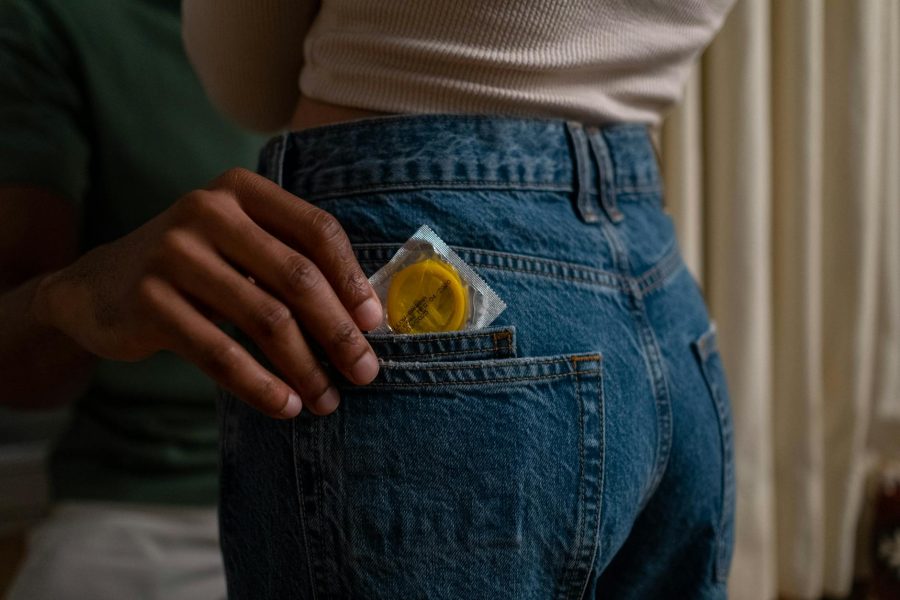Understanding Sexual Health
Getting a grip on sexual health is key to making smart choices and boosting your well-being. Let’s talk about how it shifts over time and the must-have resources for our LGBTQ+ pals.
Sexual Health Changes with Age
Sexual health isn’t a one-size-fits-all thing–it morphs as you age. Fast and furious in your youth might mellow out to something deeper as you hit those middle and golden years. It’s not just the body changing; your mind and heart play a part too (Harvard Health Publishing).
Older folks often get a confidence boost, hone those chat skills, and care less about what people think. All this adds up to a more fulfilling and meaningful experience. Check out this quick rundown of what changes over time:
| Age Group | Physical Changes | Emotional Changes |
|---|---|---|
| Youth | High intensity | Less emotional maturity |
| Middle Age | Calmer response | More confidence, communication skills |
| Later Life | Calmer response | Deeper emotional bonds |
Dive deeper into spicing up your sexual well-being at any age with sexual health facts.
LGBTQ+-Inclusive Sexual Health Resources
We all do better with the right resources, especially our LGBTQ+ friends. The Trevor Project hooks you up with top-tier, LGBTQ+-focused info, like spot-on sexual health education just for you (The Trevor Project).
Some must-have features of these LGBTQ+-friendly resources are:
- Info that speaks directly to you
- Doctors and support that don’t judge
- Tips for navigating unique sexual health hurdles
Using the right words makes a world of difference. Words like “unprotected sex” and “sex worker” should be tossed from your lexicon to make space for support and healing (Johns Hopkins Bloomberg School of Public Health).
Healthcare pros have the power to lift up LGBTQ+ sexual health. By smashing stigmas, they open doors to better care. Check out more on this in sexual health resources.
When it comes down to it, understanding the shifts in sexual health as we age and recognizing the need for solid LGBTQ+-focused resources helps everyone make smarter choices. For more on breaking down myths and boosting sexual health, take a gander at our articles on sexual health education and sexual health issues.
Importance of Sexual Health Education
Sexual health education is about understanding your well-being and making safe choices. It covers things like preventing STIs, different birth control methods and promotes learning that’s open to everyone.
STI Information and Risk Reduction
Getting the lowdown on sexually transmitted infections (STIs) is key to keeping them at bay and staying healthy. Good sexual health education sheds light on the specifics: types of STIs, what symptoms to look out for, how to prevent them, and why regular sexual health checkups are a smart move.
| STI | How to Prevent | Symptoms to Spot |
|---|---|---|
| Chlamydia | Use Condoms, Get Tested | Pain when peeing, Discharge |
| Gonorrhea | Use Condoms, Get Tested | Discharge, Swelling |
| HIV | PrEP, Use Condoms | Flu-like symptoms, Drop in weight |
| Herpes | Use Condoms, Take Antivirals | Sores, Blisters |
| Syphilis | Use Condoms, Get Tested | Sores, Rash |
The American Sexual Health Association provides a ton of info on STIs, what risks are involved, and how to talk with doctors and partners. Keeping up with regular sexual health checks can really cut down on the chance of getting or spreading STIs.
Birth Control Support and Empowerment
Learning about birth control puts folks in the driver’s seat regarding their reproductive and sexual choices (NJFPL). Knowing about different options – from pills to patches – helps prevent those unplanned pregnancies and keeps reproductive health in check.
| Birth Control | Type | How Long It Lasts/Works |
|---|---|---|
| The Pill | Hormonal | Take Every Day |
| IUD | Hormonal/Copper | Lasts 3-10 years |
| Condoms | Barrier | Use Each Time |
| Implant | Hormonal | Good for 3 years |
| Patch | Hormonal | Change Weekly |
Sharing sexual health resources offers insights into what’s out there and how effective they are. This kind of support encourages people to make confident choices about their health and bodies.
Inclusive Sex Education Programs
Sex education that welcomes everyone ensures all bases are covered for different audiences. Lessons need to include everything from consent and relationship smarts to understanding sexual orientation and gender identity (ACOG). Programs should cover all forms of sexual expression and help students communicate well.
Teens often turn to online sources for sexual health info, so teaching them to think critically about what they find from social media, phones, and the web is important (ACOG).
Inclusive sex education creates a respectful and informed space, boosting personal and public health in the long run. For more juicy details on the topic, check out our section on inclusive sexual education programs.
Current Buzz Around Sexual Health
Getting the lowdown on sexual health today is super important for beefing up our know-how. Right now, two biggies shaking up the scene are the boom in STIs and how judgment can throw a wrench in the works.
An Upward Climb in STIs
When it comes to STIs, the numbers ain’t looking pretty. The CDC dropped a bombshell with stats showing over 2.5 million yucky cases of chlamydia, gonorrhea, and syphilis in 2019 just in the U.S. That’s a jaw-dropper! Meanwhile, the WHO has said there’s about a million new STI infections happening every day worldwide.
| Year | US Cases of Chlamydia, Gonorrhea, Syphilis |
|---|---|
| 2017 | 2.3 million |
| 2018 | 2.4 million |
| 2019 | 2.5 million |
To keep yourself in the clear from these, regular checkups and grabbing some knowledge on prevention work wonders. Want more info? Check our deep dive on sexual health screening.
Shame Hurts Sexual Health
There’s a nasty stigma hanging around sexual health, which can mess things up for folks who need help and for the pros trying to give it. Studies show that even those in the healthcare field, especially in areas like abortion services, can feel the burn, making unbiased treatment tough to deliver.
The fallout from stigma includes things like:
- Skipping out on care because of fear of being looked down on.
- Getting tangled up in myths instead of the straight facts.
- Taking a hit on the mental health front, with emotions like shame creeping in.
| Factor | Impact on Sexual Health |
|---|---|
| Dodge the Doctor | Avoiding help out of judgment fear |
| Tall Tales | Clinging to bogus info |
| Mental Funk | Shame and the like |
Tackling these roadblocks takes a village, involving changes in community attitudes, healthcare systems, and policies, while pushing for more open talks about sexual health. Interested in seeing what can be done differently? Browse through our pages on sexual health issues and sexual health tools.
Strategies for Promoting Sexual Health
Being savvy about sexual health is just as important as brushing your teeth—okay, maybe a bit more. Understanding how to look after yourself involves things like regular STI checks, chatting openly with partners, and leaning on healthcare pros when needed.
Regular STI Testing
Getting checked for sexually transmitted infections (STIs) is like a tune-up for your health. You might not know it from the outside, but STIs can sneak around unnoticed, making it crucial to stay on top of regular testing. Some people carry infections without a hint of symptoms, so keeping tabs through regular tests is your best bet (Medical News Today).
Frequency of Testing:
- For the Active Folk: At least once a year.
- For the Risk Takers: Get checked every 3-6 months.
| Testing Frequency | Who Should Test |
|---|---|
| Annually | Those who are, shall we say, socially active |
| Every 3-6 months | Folks with higher risk experiences |
Need more on when and what to test for? Check out our testing FAQs.
Communication with Sexual Partners
A little chat goes a long way when it comes to sexual health. Honestly sharing your testing history, chatting about contraception, and voicing any worries can knock out misunderstandings before they start and build trust.
Key Discussion Points:
- Testing Tidbits: Swap stories about your latest tests.
- Contraception Plans: Make sure you’re both on the same page with condoms or other options.
- The Weird and the Worrisome: Talk about anything unusual that might need attention.
Need a hand starting the chat? Our communication tips might help.
Healthcare Provider Support
Don’t shy away from your healthcare cheerleaders—they’re there to help you win that sexual health game. Regular check-ins with them should cover what’s happening in your sex life, any STI worries, and choosing the right birth control.
Healthcare Provider Role:
- The Chat Corner: Discuss what’s happening with your health and sex life regularly.
- STI Spotting: They’ve got the tests, you need to make sure you use them.
- Contraceptive Know-How: Let them help you pick what works for you.
As the great folks at NJFPL mention, these regular health checkups are must-dos for keeping yourself tip-top.
For more tips on pulling healthcare support, see our healthcare services.
By working these strategies into how you live, you can boost your sexual health and relationships big-time. With routine STI checks, keeping the convo real with partners, and healthcare provider backing, you’re setting yourself up for a healthier, more informed life. Head over to our resources hub for more.
Addressing Sexual Health Stigma
Tackling the elephant in the room—stigma around sexual health—is key to improving how folks access and use sexual and reproductive health services.
Structural Stigma in Healthcare
Structural stigma in hospitals and clinics can throw a wrench in your plans for healthy living. Bias and discrimination can make it tough to get services like HIV care, STI testing, contraception, and transgender health services. Big players like UNAIDS and the Respectful Maternity Care Charter are hammering away at the issue to ditch the prejudice and boost sexual health awareness.
| Healthcare Initiative | Focus Area |
|---|---|
| UNAIDS’s Agenda for Zero Discrimination | Health-care settings |
| WHO’s Global Strategy on Human Resources for Health | Human resources in health |
| Respectful Maternity Care Charter | Maternity care services |
Importance of Language
Words can heal or hurt, simple as that. Using neutral language like “unprotected sex” instead of more pointed terms goes a long way toward easing the shame and stigma tied to sexual health hurdles. It’s about making it easier for folks to come forward and seek help.
| Negative Term | Neutral Alternative |
|---|---|
| Prostitute | Sex worker |
| Promiscuous | Sexually active |
| Unsafe sex | Unprotected sex |
Impact of Comprehensive Sexuality Education
The nitty-gritty of comprehensive sexuality education can lower the odds of risky sexual behaviors, STIs, and teen pregnancies. Make sure these programs are spot-on medically, grounded in facts, and right for the age of the students, starting young and sticking through life. It’s proven to work like a charm in several cases (ACOG).
| Program Aspect | Impact |
|---|---|
| Medically accurate information | Informed decision-making |
| Evidence-based approach | Reduced risk behaviors |
| Age-appropriate content | Enhanced understanding |
To get the lowdown on how these programs shake up sexual health, hop over to our section on sexual health education.
Role of Healthcare Providers
Healthcare providers are the keystones in smashing through sexual health stigma. They need to make sure they offer a judgment-free zone. We all need those docs to have the right chops and be clued in on stigma issues to truly help out.
They should promote regular sexual health checks and sexual health screenings, creating an open atmosphere for discussing sexual histories and concerns. That way, any hiccups can be caught and treated early, leading to better results for all.
Tackling stigma in healthcare, using stigma-free talk, offering solid sexual education, and empowering our healthcare heroes are the stepping stones to better sexual health awareness. For more pointers and help, peek at our sexual health resources.
Myths and Realities in Sexual Health
When it comes to sexual health, myths run wild, often leading folks astray. Here, we’ll clear up some of the common misconceptions, so y’all can get the right idea and keep yourselves healthy.
Common Misconceptions Debunked
The world’s full of myths about sexual health, and it’s time to tell ’em like it is.
-
Double Condom Use: Think two condoms are safer than one? Nope! Turns out using two is a rookie mistake. Friction can make ’em more likely to break, not less. Dr. Mann says sticking with one is your best bet (Medical News Today).
-
STIs from Toilet Seats: This one’s pure fiction. You won’t catch an STI from a toilet seat, period. STIs generally spread through intimate contact, not from sitting on surfaces. Those pesky germs can’t last long outside the human body (BU Today).
-
The Pull-Out Method: The classic pull-out method is dicey at best, clocking in at about 78% effective. The real kicker? It ain’t easy to nail every time and that pre-jac stuff can still cause a pregnancy. Better stick with condoms or the pill (BU Today).
-
Sperm Longevity: Surprise, surprise. Sperm can hang out in a vagina for up to five days. Yep, this means pregnancy while on your period is not out of the question. Sperm stick around, waiting to party with an egg (BU Today).
Effective Contraceptive Methods
Finding the right birth control is like picking out the right hat—one that fits just right. Here’s a starter pack:
| Contraceptive Method | Typical Use Effectiveness |
|---|---|
| Condoms | 85% |
| Birth Control Pills | 91% |
| Intrauterine Device (IUD) | 99% |
| Implants | 99% |
Understand the quirks and perks of each option to make sure you’re making the right call. Swing by our reproductive and sexual health page for the full scoop.
Importance of Timely Testing
Testing isn’t just for pop quizzes. Staying on top of health tests can stop STI spread dead in its tracks. Early testing makes for early treatment. Here’s the lowdown:
| Group | Recommended Testing Frequency |
|---|---|
| Sexually Active Adults | Once a year |
| People with Multiple Partners | Every 3-6 months |
| High-Risk Groups | More often, based on advice from a healthcare pro |
Regular check-ups help keep you and your partners safe. Scope out our sexual health check page for more on staying safe and sound.
Bust those myths wide open and take charge of your sexual health. Knowledge is power, my friends! Don’t just stop here—check out more sexual health resources to stay savvy and in control.











